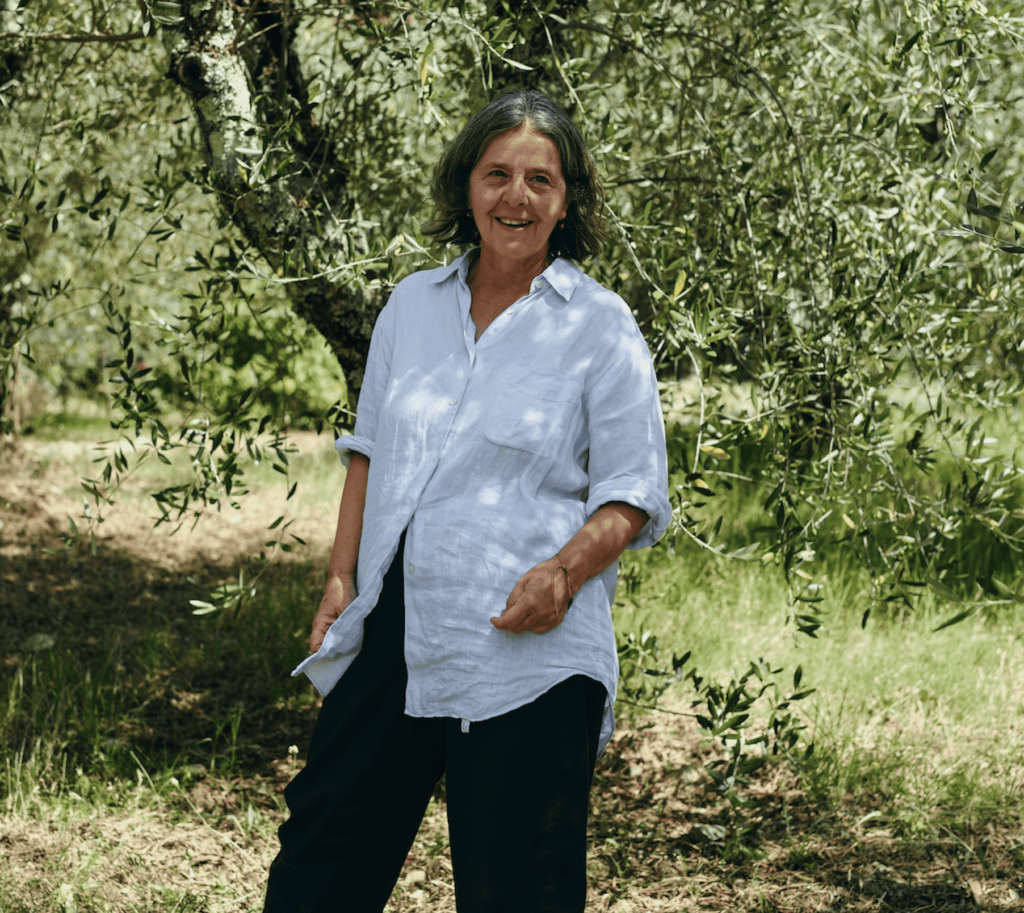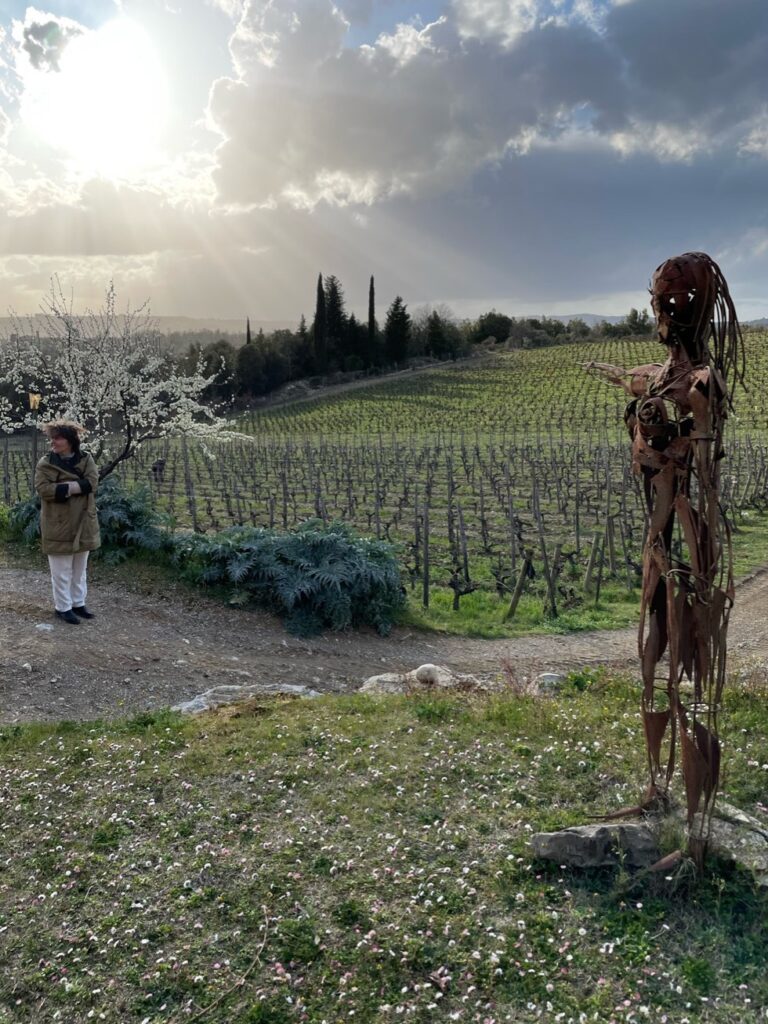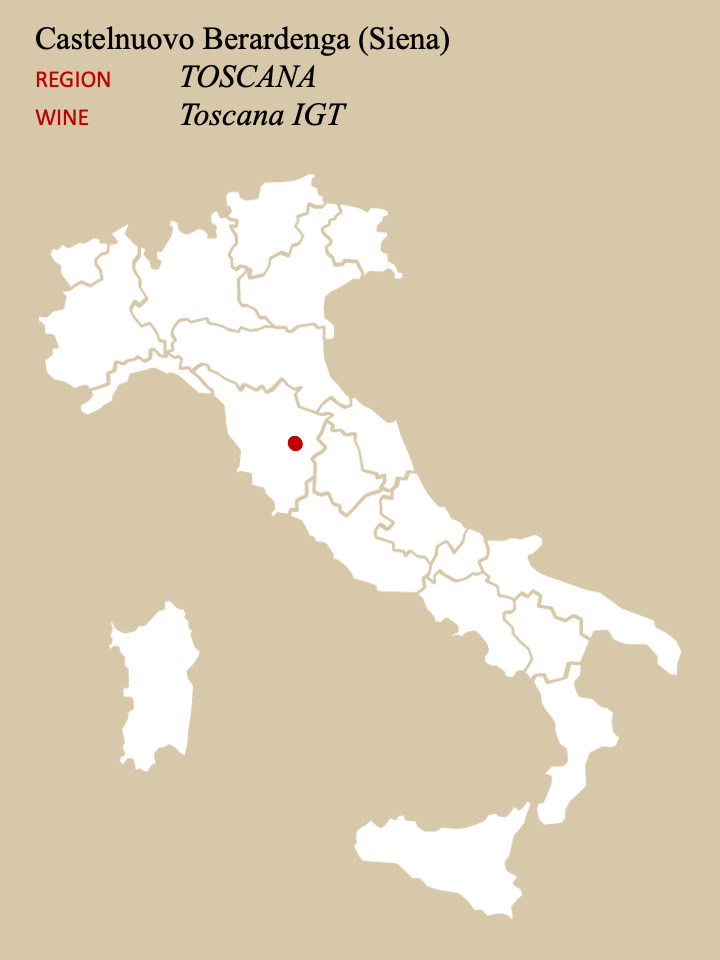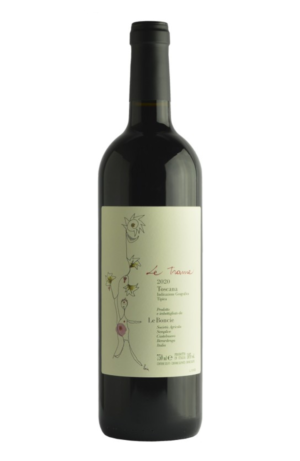Podere Le Boncie
Castelnuovo Berardenga. The hamlet of San Felice. Siena. The deep south of Chianti Classico.
Here, since the late 1990s, Giovanna Morganti has been cultivating a handful of hectares (3.5 ha), jealously reclaimed from the overwhelming dominance of industrial winemaking.
It was her father Enzo, an oenologist in the 1950s and ’60s, who first recognized the potential of Sangiovese, elevating it to a wine of true quality — freeing it from its humble image and helping to restore its rightful dignity.
With time, however, came the era of mass-produced and industrial wines, and Chianti Classico became almost unrecognizable. In the 1980s, her father left her a small farm with olive groves, called Le Boncie.
Here, Giovanna planted several historic Tuscan varieties gathered from old vineyards: Sangiovese, of course, but also Ciliegiolo, Colorino, Foglia Tonda, Mammolo, and Prugnolo.
The soils here are a mix of silt — which lends finesse to Sangiovese — and clay with high active limestone, which imparts freshness and acidity.
Le Boncie has become a stronghold of resistance — against industrial wine and against a vision of agriculture detached from true viticulture.
She plants her vineyards at high density (7,000 vines per hectare) and trains them as bush vines (alberello), returning to an ancient system once common in Tuscany. Though more labor-intensive, it is among the few methods that preserve the health of the vine wood, ensuring the vineyard’s longevity and optimal light absorption.
Her approach in both vineyard and cellar is one of non-intervention, guided by the principles of natural and biodynamic agriculture. In the cellar, winemaking remains deeply traditional: spontaneous fermentations with indigenous yeasts, carried out in small open vats, without temperature control, and with moderate maceration times — all to capture the richness and vitality of the vineyard.
Giovanna Morganti’s wines are real, authentic. Above all, they are an act of love for her land, an effort to protect its integrity.
For several years now, she has chosen not to claim the Chianti Classico DOCG designation for her wines, which are instead simply classified as IGT Toscana.



